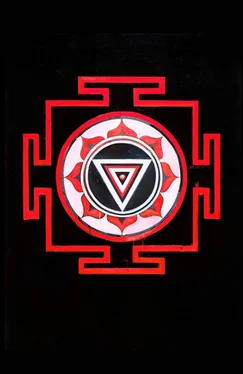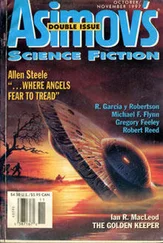I sat on the bike, burned the note, and then rode slowly toward Afghan Church to meet with Naveen.
I parked the bike behind a nearby bus stand. When I was with the Sanjay Company, I parked on any footpath in town. As a freelancer, I parked my bike out of sight.
The commemoration nave in the church featured dusty flags and pennants, with stone inscriptions to soldiers lost in two Afghan wars.
It was a military church and a battle chapel, erected as a monument to the fallen. There were still grooves in the pews for unforgotten soldiers to rest their rifles when they prayed, before and after obeying the order to kill Afghans, a people whose language they couldn’t speak, and whose culture they couldn’t understand.
The mournful church was almost empty. An elderly lady was sitting in a rear pew, reading a novel. A man and a boy knelt on the approach to the altar. The circle of stained glass above the altar seemed to float above their heads.
Naveen Adair was examining the brass eagle supporting the Bible stand. He was young, but confident. His hands were behind his back, respectfully, but his step was strong as he paced back and forth: a young man, fully inhabiting the space of his life.
He saw me watching him, and followed me to the deserted garden behind the church.
We sat beneath a tree, on a support made of stone and cement.
It was quiet. The fading light of evening became the stained-glass light of the altar window above our heads, lighting the dark garden below with church-light.
‘I’m so sorry about Lisa, man,’ he said.
‘Me, too. Naveen, gimme a minute, will you?’
I had to be quiet, for a minute.
I had to think, for a minute.
I hadn’t stopped, to think. And now that I’d stopped to think, I was thinking.
Lisa. Lisa.
‘What did you say, Naveen?’
‘… and the police report, that’s what we know, so far,’ Naveen said.
I hadn’t heard any of it but the last words.
‘Sorry, Naveen. I’m not really with it. You’ll have to run that by me again.’
He smiled at me, a good friend, feeling bad.
‘Okay. But, listen, stand up first.’
‘Come again?’
‘Stand up, man.’
‘What for?’
‘Stand up, for fuck’s sake.’
He stood up, pulling me up with him.
‘Give me a hug,’ he said.
‘No, I’m good.’
‘All the more reason. Come on, give me a hug.’
‘I’m really, really good.’
‘Fuck it, man, your girlfriend died a week ago. Give me a hug, yaar.’
‘Naveen -’
‘Either you hug the Indian in me, or you fight the Irishman in me,’ he said. ‘There’s no other way, in a situation like this.’
He was holding his arms out. There was no other way.
He hugged me like a brother, like my brother in Australia, and it was bad.
‘Let it go,’ he said, as my tears fell on his shoulder. ‘Let it go.’
Tears, in a garden of stained light: tears on the shoulder of a volunteer brother.
‘Fuck you, Naveen.’
‘Let it go.’
I let it go, and then I let him go.
‘You feel better?’ Naveen asked.
‘Fuck you, Naveen. And yeah, I do.’
We sat down again, and he told me the little that he knew. It didn’t add much.
‘Where’s Concannon running the dope gig?’
‘I don’t know,’ he said, smiling for the first time. ‘Do you want him?’
‘I want to talk to him.’
‘Talk?’
‘Talk, then listen, while he tells me who went with him to Lisa’s that night.’
‘You don’t think it was Concannon who gave Lisa the drugs?’
‘He left, according to the watchman, after fifteen minutes. The second man was there for almost an hour. I want to know who the second man was.’
‘Okay. I’ll get on it.’
‘The watchman gave me the number of the black car they came in that night,’ I said, handing him the number I’d jotted down. ‘If you could detective out the owner for me, it would help.’
‘I’ll have the owner for you tomorrow, but it might not help. Lots of people have cars registered under other people’s names.’
‘Didier set up a place for me at the Amritsar hotel, on Metro. You can leave a message there, or I’ll be at Kayani’s, tomorrow, between one and two. Okay?’
‘You left your place?’
‘I did. And I’m not going back.’
‘Where are you going now?’
‘I have to meet Karla, at eight. I’m gonna buy a shirt, and check in at the Amritsar. What are you doing?’
‘I have to pick up Diva, at seven thirty. I’m free till then. Mind if I come along?’
‘I’d be glad of the company.’
We rolled the bike out from behind the bus stop, I kicked the engine happy, and he climbed on behind me.
‘I’ve been learning how to ride,’ he said.
‘Uh-huh.’
‘I’ve got my eye on this tricked-out vintage 350. It’s damn cool, and really fast.’
‘Uh-huh.’
‘And the racer boys have been teaching me how to stunt ride.’
‘The racer boys, huh?’
‘Yeah. Rich kids on imported Japanese bikes. They’re Diva’s friends. And good riders.’
‘Uh-huh.’
‘Would you like me to show you what I can do on your bike?’
‘Naveen, don’t ever talk about my motorcycle that way again.’
‘Got it,’ he laughed. ‘But just wait till you see mine!’
We rode along Fashion Street, where a stallholder in a drive-by-shirt-shop brought a new shirt and a couple of T-shirts to the bike, and then we rolled on to the Metro Junction.
I parked the bike in an alleyway behind the hotel’s façade, which passed beneath an arch, connecting the second to fourth floors of the whole block.
The Amritsar was in a curved building that faced the junction like a cliff-face, rising from pelagian traffic swirling around the vast intersection.
At ground level, there were sporting goods shops, office supply outlets, a music store, and Kayani’s restaurant, served by the alley behind the hotel’s façade.
At the second floor and up, the whole building was connected by a network of corridors and hidden stairways, leading from shuttered street balconies to the last private apartment, at the end of a city block. If you knew your way, you could be in another postal code, in the same building, while the cops or other bad guys were still banging on the door.
It was rumoured that the Amritsar had twenty-one exits. I was happy with three. The first thing that a man on the run does in any new place is find the exits. Before I went to the desk, I explored the building with Naveen. I found three suitable hasty exits, leading to three different places on surrounding streets. Nice.
When Naveen and I reached the reception desk we found Didier, rolling dice with the hotel manager. He rose to hug me.
‘Lin,’ he whispered in the hug. ‘I am about to win a discount on your rent, before you are even a registered guest.’
‘Let’s pay the rent first ,’ I whispered back, ‘and you can win the discount later.’
‘Shrewd,’ he said, pulling apart again.
I checked in with one of my false passports, and took a look at my new rooms.
There was a large living room, with a bedroom and bathroom leading from it through high, wooden doors. A kitchenette filled one corner alcove.
At the far end of the room there was an archway of French doors, leading to a shadowed balcony. I walked through, opened the shutters, and looked out at the busy junction below.
The view was superb: a giant child’s toy, wound up and whirling through its cycle of light, sound and movement. Beyond were the trees of the Bombay Gymkhana, their leafy shadows making a tunnel of the road.
I looked around me and saw that there were only short, flimsy partitions between my balcony and the two sets of rooms beside it. The rooms looked deserted.
Читать дальше












